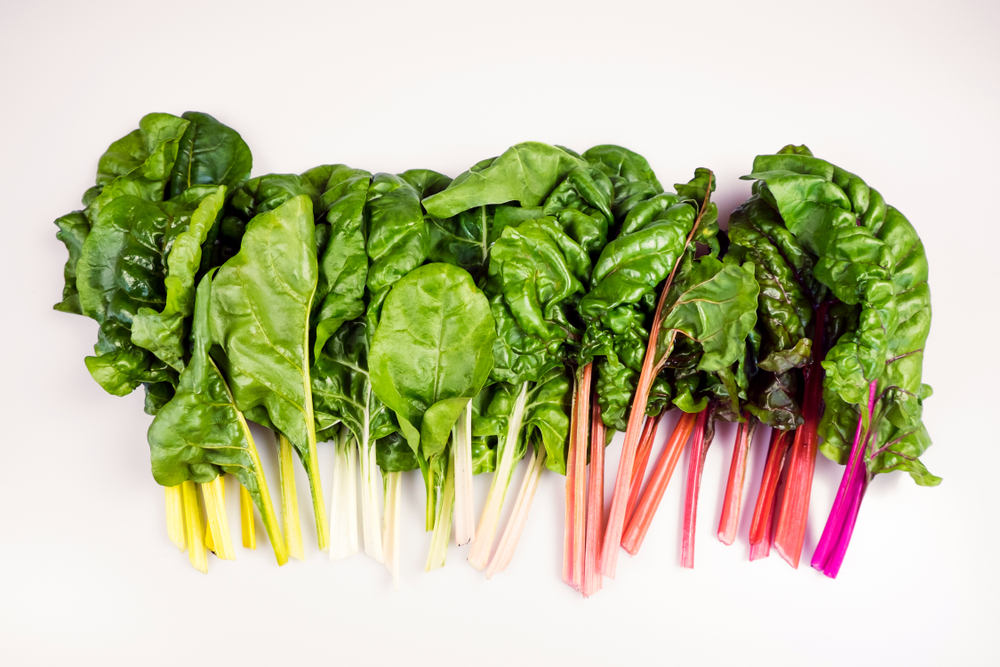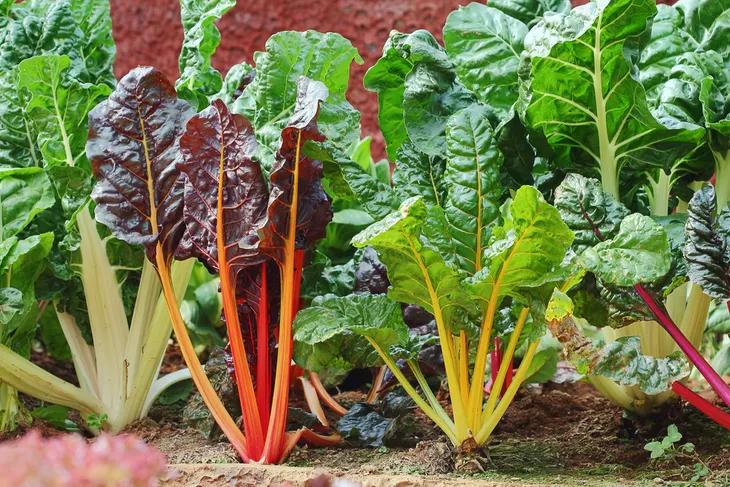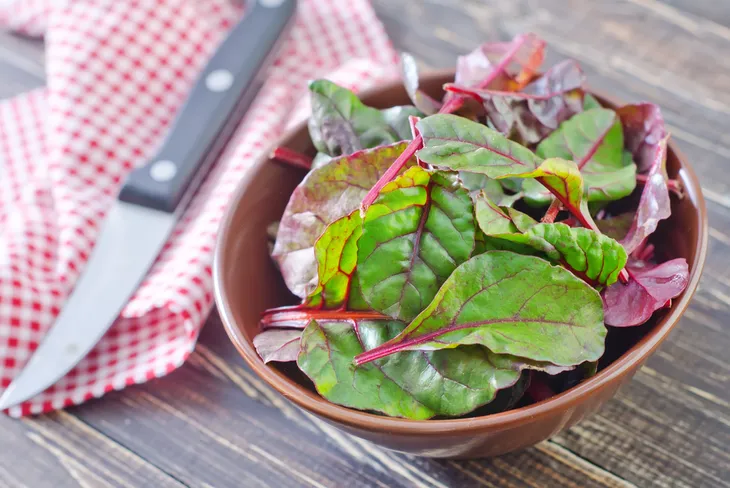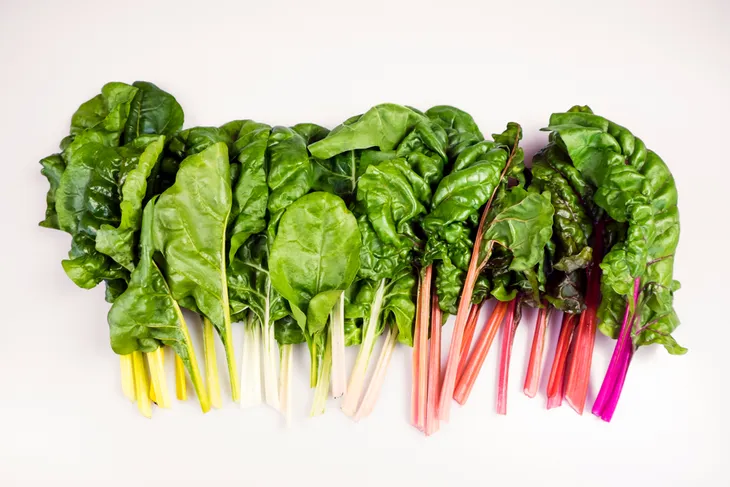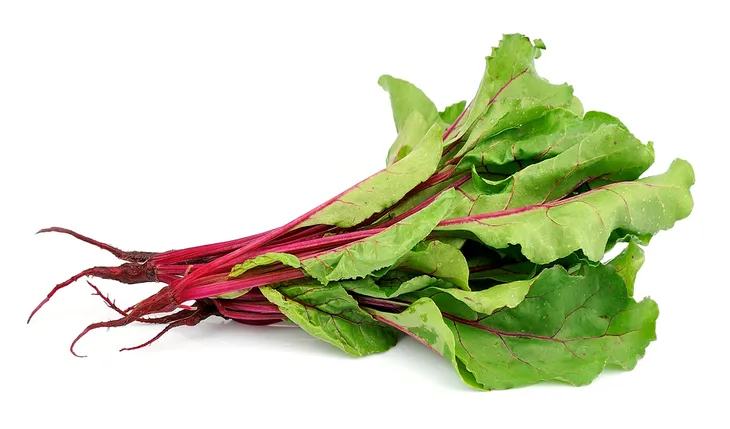For a few years now the health food community has been absolutely raving about leafy greens, with a special focus on kale. And there’s good reason for that: kale, which is widely available and can be added to just about any type of dish, is absolutely packed with components that help regulate blood sugar levels, fight off cancer, improve the immune system, and fend off heart disease. Like other leafy greens, it has virtually no calories or fat.
But kale isn’t the only star of the leafy green show. Health aficionados should also be familiar with swiss chard, a visually stunning green that typically features red or purple highlights (primarily because it’s closely related to beets). Like kale it’s a veritable super food, but what makes it so special and why should you consider buying this along with or even instead of kale?
Swiss Chard has Been Noshed for Centuries
Here’s a quick tip for those looking to eat right and get in shape: try to gravitate towards foods that have been eaten for a long, long time (like fruits and vegetables) rather than foods that were invented in a laboratory in the past fifty years or so (like packaged snacks).
Swiss chard has been consumed for centuries and has been a major ingredient in Mediterranean dishes during that time (in fact, history shows us it was first eaten in Sicily). You may recall that the Mediterranean diet, which involves a lot of fish, olive oil, fruits and vegetables, is currently one of the most popular avenues for losing weight and getting in shape.
It’s Dynamic
Unlike many foods, swiss chard flavor changes a lot when it’s prepared in different ways. Eaten raw in a healthy salad, it boasts a slightly bitter taste that mixes favorably with a sweet salad dressing, like raspberry vinaigrette. Saute it in a pan, however, and the bitterness dissipates, giving it a texture and taste closer to spinach.
That makes swiss chard a popular choice for home cooks and professional chefs alike, particularly if they’re cramped for refrigerator space and storage.
Jam-Packed with Healthy Stuff
Swiss chard, like so many leafy greens, is low in calories and contains no fat. In the world of vegetables, that doesn’t make it particularly special. But what does set it apart is the long list of vitamins and nutrients that can be found inside.
That list starts with vitamins like vitamin K, vitamin C, vitamin E, and vitamin B6. As for nutrients, in swiss chard you’ll find magnesium, potassium, iron, sodium, copper, and manganese. As if that wasn’t enough, swiss chard is also a bountiful source of fiber and antioxidants, meaning it can help keep you “regular” and has what it takes to help fend off various types of cancer.
This Green Aids Diabetics
As the eating habits of North Americans gravitate towards fast food and highly processed and packaged foods, the number of people suffering from type 2 diabetes continues to rise. For these people monitoring blood sugar levels is a constant concern, because failing to do so can leave one in a remarkably unhealthy state.
That’s where leafy greens like swiss chard can help. Swiss chard contains a flavonoid known as syringic acid, which can actually help regulate blood sugar levels in the human body. By limiting the activity of the enzyme alpha-glucosidase, syringic acid plays a vital role in keeping diabetics’ blood sugar levels relatively even, allowing them to maintain a relatively normal lifestyle. This capability also makes swiss chard a great food choice for people who may be in danger of getting diabetes, like people struggling with obesity or those with diabetes in the family.
Cancer Fighter
Any food that can help in the fight against is worth investigating; for that matter, it’s worth picking up from the grocery store on the way home from work tonight. Swiss chard fits comfortably into this category of cancer-fighting foods primarily because of its abundance of antioxidants, which are capable of neutralizing free radicals and limiting the chance that healthy cells become cancerous cells.
On top of that, swiss chard is loaded with vitamins and minerals—from vitamins E and C to zinc, lutein, beta-carotene, and quercetin—that have been heavily credited for helping reduce one’s chances of developing several types of cancer, including cancers affecting the lower intestine.
Builds Stronger Bones
Ask someone to name a food or drink that helps build stronger bones, and chances are they’ll start with dairy products like milk, yogurt, and cheese. And there’s truth to that: many of these products are high in calcium, which can promote bone health.
But calcium isn’t just limited to dairy products like milk and cheese. It’s also prevalent in the multi-colored leaves of greens like swiss chard. In fact, swiss chard is simply packed with calcium, as well as magnesium and vitamin K, both of which can play an important role in the building and maintenance of healthy bones.
Boosts Brain Health
If you regularly work the nine to five shift at your workplace, chances are you often feel mentally drained, making it difficult to focus on anything for an extended period of time. There’s probably a good reason for that, particularly if you have a job that’s demanding in a mental or psychological way.
Of course, your problem may also be related to your diet. Few of the pre-packaged or highly processed foods that people eat these days has anything that can help improve brain functionality, which can help to explain why we feel so mentally drained at the end of the day. To help give your brain a boost and improve focus beyond the work day, try foods that are high in potassium and vitamin K, both of which can help enhance cognitive development and capabilities. For those who love leafy greens like swiss chard, there’s good news: these types of foods are high in both potassium and vitamin K.
Aids Circulation
Ever find yourself feeling chilled at work or home, even when the heater is running full blast or it’s a nice and sunny day? The problem may be you, and specifically your blood circulation. If you suffer from poor blood circulation, you can feel cold, weak, tired, distracted, even sick to your stomach on a regular basis.
Of course, it’s important to have a conversation with your doctor to confirm your suspicions. Once that’s done, you should focus on eating foods that are shown to help improve blood circulation. Eating ample amounts of swiss chard and other leafy greens can help promote the oxygenation of essential organs through the increased circulation of blood throughout the body.
Heart Helper
Swiss chard, like many other leafy greens, fruits, and vegetables, contains antioxidants that can help fight inflammation, helping in the healing process. But that’s not all: antioxidants can also help lower blood pressure, reducing stress on the heart and circulatory system.
This makes swiss chard an excellent food choice for anyone suffering from a significant heart problem. However, it can also be helpful for someone who may be at risk for other serious conditions, including stroke. (Here’s a list of more Foods Good For Your Heart).
